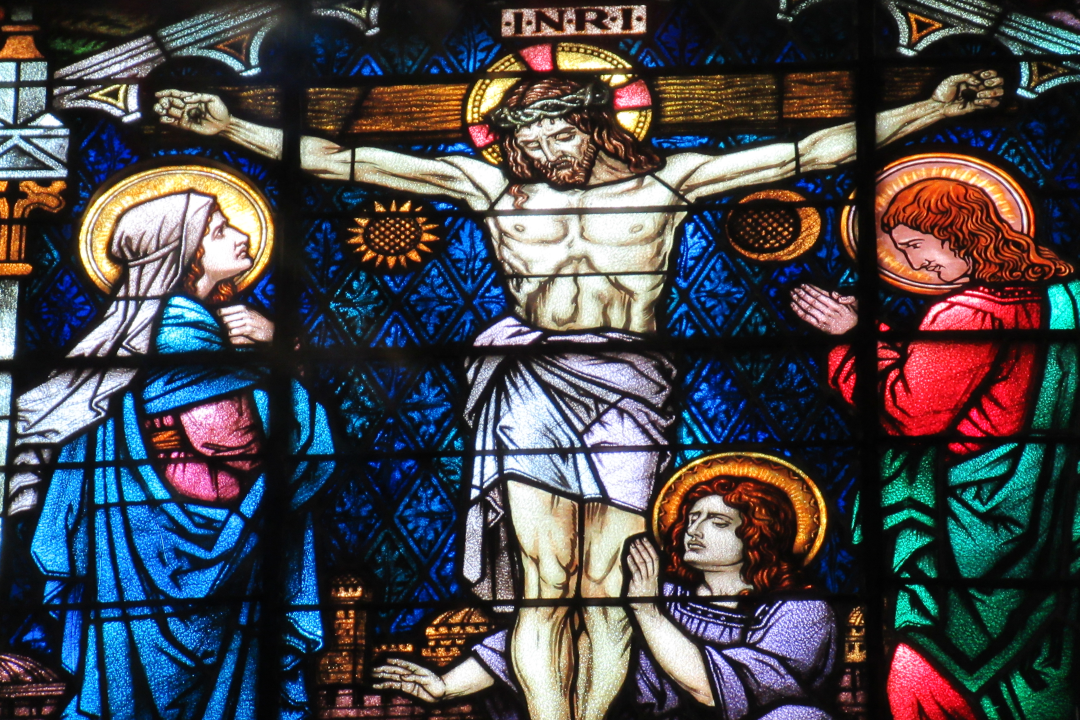
The Mystery of Suffering
In this day and age medicine has attained extraordinary success, curing diseases that were formerly considered mortal. In the past, the transplant of an organ—heart, liver, kidney—, was unthinkable, but today it is a relatively common and straightforward procedure. What marvels science has achieved! Despite this, it is impossible to entirely eliminate sickness and suffering.
If the eradication of physical ills is not feasible, the same can be said—and even more emphatically—of spiritual ones. We are often faced with disappointment, tragedy, anxiety, doubt, perplexity, quarrels, and the discords that destroy families… Life is fraught with difficulties and we cannot flee from them entirely, nor can money buy complete satisfaction on this earth. How, then, should we respond to suffering?
Man needs to suffer
Let us consider man’s happiness in Paradise, where the plants and inanimate beings were under his dominion, and the animals obeyed him. Admirably balanced, he enjoyed truly ineffable pleasure to the fullest degree, for nothing caused him suffering—it was pure joy. There were no storms, the climate was always agreeable, enhanced with gentle breezes. The tranquillity of nature was an image of man’s temperamental serenity, for, endowed with the gift of integrity, he was untouched by disorderly movements of his sensible appetites. He was, therefore, unacquainted with suffering.
Within this perspective, let us imagine that Adam and Eve had not fallen, and that society had developed in Earthly Paradise, with people interacting harmoniously, experiencing perfect joy exempt from all suffering. Going a step further, let us suppose that an individual with original sin were introduced into this setting.
He would coexist with the others without the least possibility of misunderstanding arising; he would be treated with courtesy and consideration, and enjoy a deep sense of well-being on account of being surrounded by attention, care,
and affection. But, as absurd as it may seem, this man would experience keen suffering… the pain of not suffering!
Let us now imagine another situation: a prince whose every wish is promptly heeded and all annoyances are done away with. If he thinks of eating, he is presented with an array of delicacies; if he dreams of a bed, a plush goose down mattress is brought to him; if he feels thirst, he is provided the finest beverages that the world offers, at just the right temperature! Now, based on the teachings of Catholic spiritual writers, we may conclude that this or any other such hypothetical person would experience intense bitterness of soul, more than anyone else. Why? Because after original sin, the human creature thirsts for suffering.(PIUS XI. Miserentissimus Redemptor, n.5)
The need our bodies have for exercise and movement is a reflection, determined by God, of the spirit’s analogous need for suffering. When, for example, a person breaks an arm and is obliged to stabilize it for a time, he is astonished, when the cast is removed, at how thin and flaccid the arm has become. Physiotherapy is needed in order for the arm to recover its strength. By the same token, without suffering, the soul becomes sickly, languid, and loses its strength.
What suffering means for a Catholic
Therefore, philosophical schools which seek an explanation for suffering that differs from the Catholic view are mistaken when they affirm that it must be avoided at all cost or be accepted with a self-destructive spirit. The only religion with the right attitude toward suffering is the Holy Roman Catholic and Apostolic Church. She shows that suffering is necessary and should be understood. We only truly comprehend it by looking to Our Lord Jesus Christ on the Cross. He took on flesh with the goal of making reparation for the sin committed by humanity, to restore the glory of God and order; and He desired to accomplish this through the torments of His Passion.
All of us have sinned in our parents Adam and Eve, and throughout life we have also contravened the glory of the Creator by falling into countless actual faults. We know that the Seventh Commandment is not only violated by stealing the money or property of another, but also by withholding the glory that belongs to God. And if, in the first instance, in order for the transgression to be pardoned restitution must be made of that which was stolen, it is no less imperative to return to God the glory that sin has denied Him.
This is precisely the trial to which God submits intelligent creatures, Angels and men: that of never attributing their successes and triumphs to personal effort, never imagining themselves as the source of the qualities which they were granted, such as vitality, intelligence, or capability to work. It is our duty, rather, to acknowledge that merits come from God, for it is He Who gives us everything, in the natural and especially in the supernatural realm, as Our Lord said: “without Me you can do nothing” (Jn 15:5).
Taken in this sense, suffering is a way of moving the soul to make restitution for what it has received, thereby successfully passing the test. Suffering makes it clear how dependent we are on God, and compels us to turn to Him. It is easy, in success, to close in on ourselves and, blinded by self-sufficiency, forget the Creator, ultimately dissociating ourselves from Him. “Illness and suffering”—the Catechism affirms—“have always been among the gravest problems confronted in human life. In illness, man experiences his powerlessness, his limitations, and his finitude. […] Illness can […] make a person more mature, helping him discern what is not essential in his life so that he can turn toward that which is. Very often illness provokes a search for God and a return to Him.” (Catechism of the Catholic Church, #1500-#1501)
Furthermore, suffering is the best purifier of our souls, since through it we repent of our faults, acknowledge our misery and our state as mendicants of grace and divine pardon. “Taking up one’s cross each day and following Jesus is the surest way of penance.” (Catechism of the Catholic Church, #1435)
Let us embrace suffering with eyes set on the Cross of Christ
Today we are invited to accept suffering as a necessity, and to acknowledge it as a fundamental element for a balanced soul, so that, relinquishing attachment to creatures, it may reach full union with God. If we feel inclined to ask Him to remove a suffering, let us pray with confidence, certain of being heard; but if we feel inspired to endure the adversity with resignation—it could be an illness, a trial or any difficulty—, let us beseech Him to give us the necessary strength to live with the joy, of which He Himself gave the example, together with His Most Holy Mother. Above all, let us not give in to evil sadness, which produces discouragement, and let us be determined, in the depth of our soul, to fulfil God’s will; then we will have peace.
On a certain occasion, when the author was waiting to be attended in a hospital room, with a life-threatening condition, another patient arrived—wailing and protesting—seemingly in serious pain. Turing to her, he said: “Just think for a moment, ma’am: we’re both suffering, but can we compare our hardships to what Our Lord Jesus Christ endured? For love of us He let Himself be slaughtered like a lamb without uttering a moan from the height of the Cross! Let’s accompany Him with our sufferings and offer our pains to console Him.” The woman closed her eyes, held back her tears and regained her composure. Remembrance of the Redeemer’s sufferings in the Passion is a powerful balm for our sufferings.
The Innocent One, Whose human nature is united to divine nature in the Person of the Word, exclaimed before expiring: “Eli, Eli lammá sabactáni—which is to say: My God, My God, why hast Thou abandoned Me?” (Mt 27:46). Mysteriously—in way that our reason cannot grasp—, His Soul suffered the sensation of abandonment, “the absence of any form of joy or consolation which would mitigate the bitter pain and the sadness of the Passion.” (SUÁREZ, SJ, Francisco. Disp.38. sec.2, n.5. In: Misterios de la Vida de Cristo. Madrid: BAC, 1950,v.II, p.154) Why? Because the Father desired every glory for Him!
The path that God traced out for the Blessed Virgin, the Mater Dolorosa—that purest of creatures, without stain of original sin—was also one of suffering, as we have already observed. In presenting the Child Jesus in the Temple, she heard a prophecy from the lips of Simeon, according to which a sword would pierce her soul (cf.Lk 2:35). She later had to flee with the Divine Infant to Egypt and, then, she lost Him for three days in Jerusalem; her afflictions continued until their culmination on Calvary. Even after the joys of the Resurrection, she still remained fifteen years here on earth in the absence of her Son… A continual suffering, which made of her the Co-Redemptrix, for while all of us receive consolation amid afflictions by considering Christ on the Cross, for her—as St. Alphonsus Liguori (ALPHONSUS MARY LIGUORI. Glórias de Maria. 2.ed. Aparecida: Santuário, 1987, p.364-365) rightly affirms—, the contemplation of the Passion brought no relief at all, for it had been the very source of her sorrows.
Let us ask Our Lord Jesus Christ, Who immolates Himself daily in an unbloody manner in the Holy Sacrifice of the Altar, to pour out, through Our Lady, torrents of graces upon us, so that we will be convinced of the benefits of suffering, and will face it with elevation of spirit and eyes set on His Cross.
